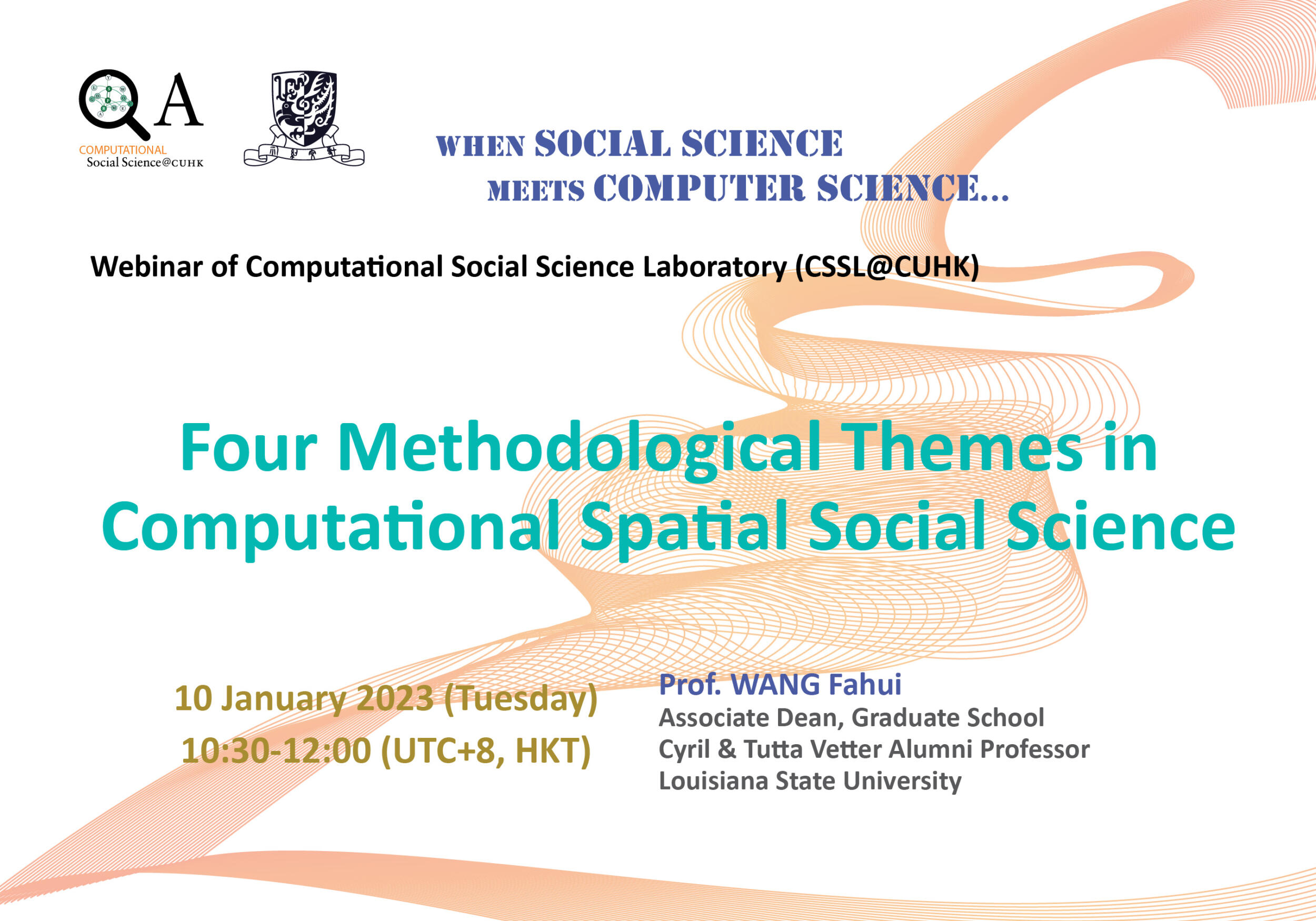Events
[CSSL@CUHK Webinar] Four Methodological Themes in Computational Spatial Social Science
10 Jan 2023
10:30 – 12:00 (UTC+8, HKT)
Webinar
Prof. Wang Fahui
Fahui Wang is Cyril & Tutta Vetter Alumni Professor and Associate Dean of the Graduate School, Louisiana State University. He earned his B.S. in Geography from Peking University, China (1988), and M.A. in Economics (1993) and PhD in City and Regional Planning (1995) from the Ohio State University. He was a recipient of the LSU Rainmaker Award for Outstanding Research, Scholarship and Creative Activity (2015), the LSU Distinguished Faculty Award (2018), and the Cyril & Tutta Vetter Alumni Professor (2020). His research interests cover human geography (urban, economic, and transportation), city and regional planning, crime analysis, and public health, with a methodological focus on spatial analytics in Geographic Information Systems (GIS). He is among the top 1% Most-cited Researchers in Geography in the world.
For more information, visit http://faculty.lsu.edu//fahui/.
For enquiries, please contact us at fssc06@cuhk.edu.hk.
Webinar Links: https://linktr.ee/cssl_cuhk
This talk outlines four methodological themes in spatial analytics with broad applications in social sciences and public policy, all grouped under the umbrella of “Computational Spatial Social Science”. Spatial accessibility measures the relative ease by which the locations of activities or services can be reached, and serves as a major matric for location advantages. Regionalization constructs regions by merging small areas that are similar in attributes or are tightly connected. The former forms homogenous regions and the latter defines functional regions. Both can be scale flexible and thus produce a series of area units to support analysis, management, and planning. Spatial simulation imitates real-world social, economic, and human environments, behaviors and interactions in a lab setting, and empowers social scientists for discovery and cost-effective policy experiments. Finally, the maximal accessibility equality problem (MAEP) is proposed as a new location-allocation paradigm in spatial optimization to plan public resources and services.




